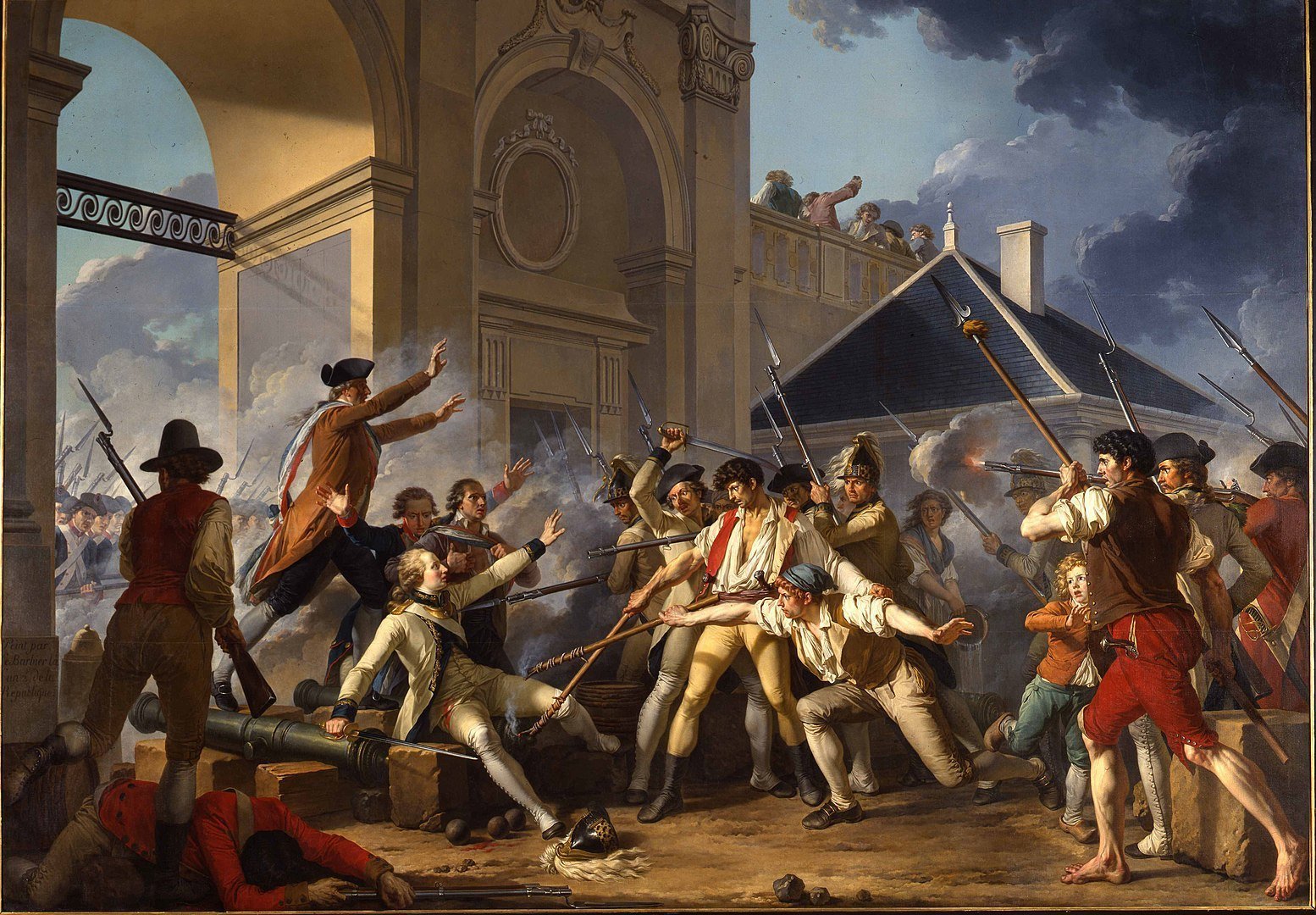The Birth of the Modern Band
Paris, 14 July 1790, the 1-year anniversary of the fall of the Bastille. A huge crowd of more than 400,000 people have gathered on the Champ de Mars to celebrate the Festival of the Federation, a national celebration of revolutionary solidarity and patriotic fraternity.
To seat the 400,000 spectators a huge amphitheatre has been carved out of the earth, the size of ten football fields. The city hired several thousand of the poor to help with the manual labour, but when even this wasn’t enough an extraordinary amount of volunteers came to finish the job.

At one end of the amphitheatre are three huge triumphal arches through which the coming parade will pass. There is a special pavilion for the king decorated in the national colours, and in the centre of the amphitheatre is a podium 25 feet high on which sits a temple of flowers and room for two hundred priests. Everything about the Festival of the Federation is epic.
The festival starts with a procession at 7:00 am, from the site of the Bastille to the Champ de Mars. A mass is held while the rain intermittently soaks the enormous crowd.
After the mass, Lafayette climbs the steps of the altar and takes the civic oath to the new constitution, while holding the sword given to him by George Washington. Each member of the National Assembly take the same oath and cry “Vive la Nation”. King Louie XVI stands in his pavilion, points to the altar and also takes the oath.
All this pomp and ceremony must have been a great spectacle for the 400,000 members of the public, but a soundless one. Surely none of the speeches or oaths could be heard from far away, over the noise of the enormous crowd.
But then to conclude the ceremony the band began to play.
François-Joseph Gossec was a dependable and respected composer, who at 56-years of age was at the peak of his profession. He would go on to compose more revolutionary wind music than anyone else. For this first festival, Gossec chose to compose a Te Deum. It didn’t reflect the nationalistic mood sweeping the nation, and it would be the last abstract choral work in Latin for many years, but the Te Deum suited the pseudo sacred tone of the festival.
It is written for pairs of piccolos, clarinets, oboes, trumpets, horns, alto winds (which were probably something like tenor oboes), a bassoon and serpent, and percussion. Three trombone parts on the score are only present for 33 bars, but we assume they played the role they have for hundreds of years by doubling the vocal parts (especially in this case where they share exactly the same clefs as the voices).
Two reports of the day remark on the size of the band that played. One report says there were twelve hundred musicians. Another report says 300 drums, 300 wind instruments and 50 serpents. Even if both these reports are wildly inaccurate, in a time when a band in Europe probably meant no more than a dozen musicians, it was the largest band the world had ever seen.
The performance of Gossec’s Te Deum, on the 14 July 1790, changed the instrumentation of the band forever. The clarinet took over from the oboe (with its aristocratic connections) as the main melodic instrument, and the band almost quadrupled in size from here on.
The Gossec Te Deum, is available in a modern playable edition from Maxime’s Music.




